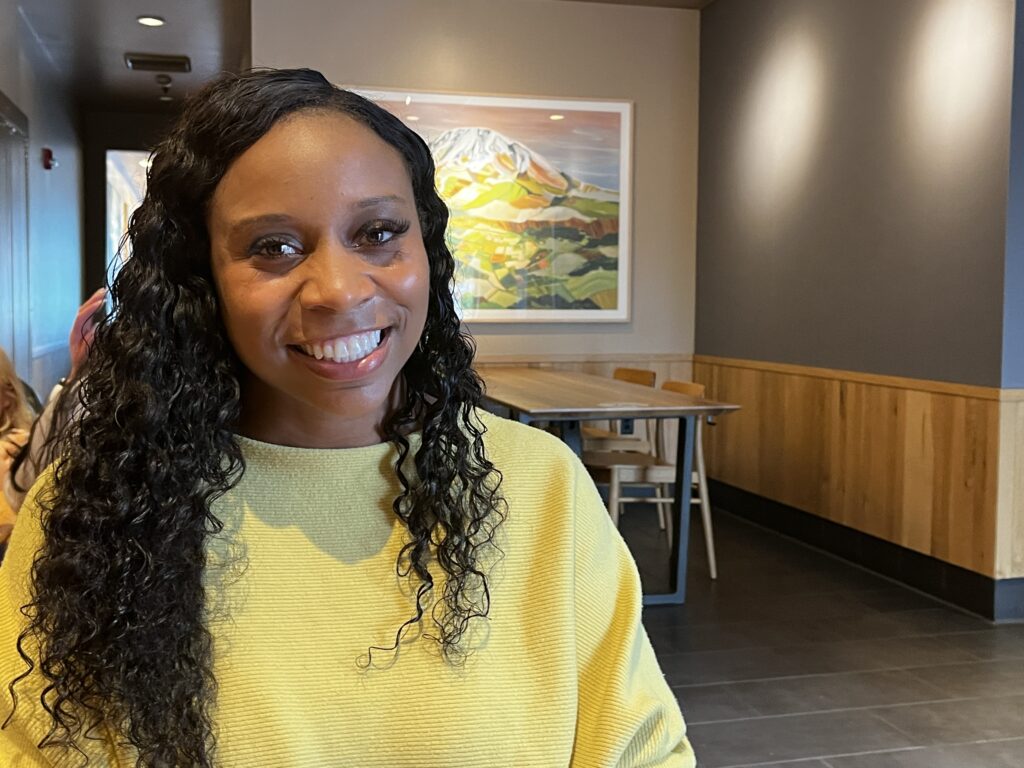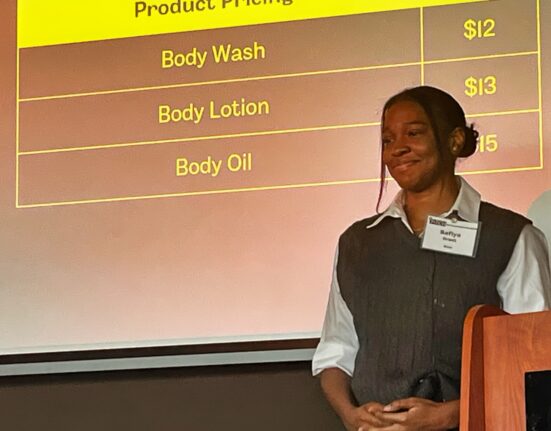
This piece first appeared in Blueprint365 Magazine. Click here to request your complimentary copy.
Shyla Gorham never intended to get into real estate. But then again, most people don’t.
“In real estate, a lot of people kind of just fall into it,” she said in a recent interview.
After earning a degree in history at UW-Madison, the Milwaukee native took a job at CBL Properties, the company that owns and operates West Towne Mall and East Towne Mall in Madison. It was her job to bring retail businesses into the kiosks in the middle of the mall and help them grow until they needed more space.
“I would go out and canvass the local area – and ‘local’ means Chicago to small towns up north – and just see if people wanted to come into the mall to grow their businesses. That was a big learning experience,” she said, adding that it was fulfilling to help those small businesses succeed.
“I loved to see them grow from coming in for a weekend to having a whole storefront,” she said.
But then the COVID-19 pandemic happened, devastating the brick-and-mortar retail industry – and industry that was already suffering due to the prevalence of online shopping.
“It was definitely a very challenging time and a time where I felt like I needed to make a change in my career,” Gorham said. “It was a lot, and I just wanted something different, something more concrete. I kind of joke, you can’t do surgeries on Amazon.”
There’s so many jobs that are meaningful to other people and everyone finds value in what they do, but I think for me … I’m in the right space. This matters. This is very important. Shyla Gorham
Indeed, pandemic or not, the health care business requires a physical space. Even the advent of telehealth hasn’t really changed that.
Gorham found that job security first with SSM Health, managing real estate transactions and lease agreements in the Madison area. At the time, SSM had even back office workers pitching in to support clinical staff during the darkest days of the pandemic, an experience that gave Gorham a sense of perspective.
“It makes you realize, okay, I got mad this morning because I couldn’t print something or the stapler didn’t work,” she said. “And this (caring for people) is why we do what we do. (Healthcare providers) need space to help these patients, to make a difference. It’s literally life and death … I mean, there’s so many jobs that are meaningful to other people and everyone finds value in what they do but I think for me … I’m in the right space. This matters. This is very important.”
Just about a year ago, Gorham joined Cushman & Wakefield, one of the world’s largest commercial real estate services firms, as a national healthcare advisor.
“Our expertise and our specialty is to be able to really help clients in that medical real estate world to figure out what they need to do and how they can best maximize their profits as well as serve in those communities that need the help the most,” she said. “We help businesses who are either hospitals or clinics and even home health find the space that they need – clinical space or office space … My main account has close to 300 locations across the country, so I help strategically plan their real estate portfolio, whether it’s to expand or get rid of spaces or combine spaces.”
Gorham said healthcare real estate does, in some sense, abide by the old adage that the three most important considerations are location, location and location. But what exactly makes a good location is different.
“With retail, you’re very forward facing, and you want to have a hub where everyone can come and see your storefront,” she said. “Our firm has a lot of maps and a lot of technology to help (healthcare providers) understand, where are the patients? If their focus is the elderly, where’s the biggest population of elderly folks? Where is there a Walgreens or CVS? And where is that in relation to where you want to be?”
In addition to clinical space, Gorham helps healthcare providers find and acquire administrative office space, something that did change as a result of the pandemic and an overall workforce trend of remote or hybrid work.
“From what I’m seeing, there’s a big push to go back into the office, at least a couple days a week,” Gorham said, but still, her clients are “definitely looking at probably reducing their footprints or (finding) more efficient spaces.” Part of that is an office utilization strategy Gorham calls “hoteling,” in which one employee might use an office or desk a couple days a week, and another employee uses it the other couple of days, and nobody gets too attached to a specific space in the office.
Gorham herself is working entirely remotely (“My dog and cat are my coworkers,” she quips) for the DC-based firm, and makes an intentional effort to get out and about. She’s a Sunday School teacher, a member of the Carbone Cancer Center’s Emerging Leaders Board, and a member of The Business Forum, which gives out the Athena Awards every year.
“To be able to give back to a community that I’ve gotten so much out of is definitely important to me,” she said. “Even though it might not directly affect my job or help me get leads specifically, I think it’s just so important to stay active in the community and to give back.”






